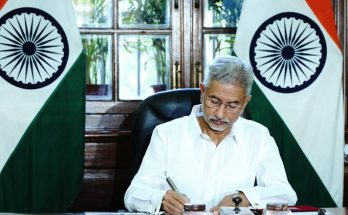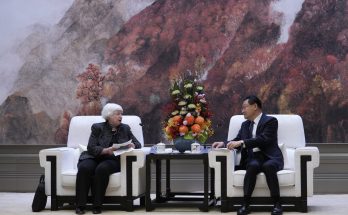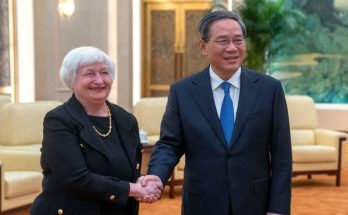 It was touted as China’s event of the year — a meeting where the Xi Jinping-led Central Committee would finally unveil its “blueprint of comprehensive reforms” and help the world’s second largest economy take another step towards realising its ‘Chinese dream’. However, after months of speculation and statements about the Party bringing in “unprecedented reforms”, when the Third Plenum of China’s 18th Party Congress released its Communiqué, the document proved to be lacklustre and failed to spring any major surprises. The proposed ‘reforms’ didn’t quite translate into the promised breakthroughs and despite the expected ambiguity of political jargon in a Party document, the Communiqué was still found wanting in terms of outlining specific policy details. However, a 60-item resolution and an 11,000 word presidential letter later, the Party managed to bring in a degree of reassurance by unveiling these six important reforms:
It was touted as China’s event of the year — a meeting where the Xi Jinping-led Central Committee would finally unveil its “blueprint of comprehensive reforms” and help the world’s second largest economy take another step towards realising its ‘Chinese dream’. However, after months of speculation and statements about the Party bringing in “unprecedented reforms”, when the Third Plenum of China’s 18th Party Congress released its Communiqué, the document proved to be lacklustre and failed to spring any major surprises. The proposed ‘reforms’ didn’t quite translate into the promised breakthroughs and despite the expected ambiguity of political jargon in a Party document, the Communiqué was still found wanting in terms of outlining specific policy details. However, a 60-item resolution and an 11,000 word presidential letter later, the Party managed to bring in a degree of reassurance by unveiling these six important reforms:
I) ‘Decisive’ role to the market: The Xi Jinping-led Central Committee was well aware that a reformist agenda would have to make space for a more competitive market in its schema. Therefore, it really came as no surprise when the Party announced that it would henceforth lend a more ‘decisive’ role to the market. Both the Plenum Communiqué and the resolution have focused on the importance of establishing fair, open and transparent market mechanisms to accelerate slowing economic growth rates and facilitating greater capital inflow. Whether the Party’s new-found ‘decisiveness’ can help break the monopoly of state-owned enterprises, however, remains a key question. The Communist Party in China enjoys a huge monopoly over most industrial sectors ranging from energy, banking and telecommunications. In the recent years however, a substantial number of state-owned companies have begun to report a drop in profits coupled with onerous debts. The new leadership has promised that the prices of water, oil, natural gas, electricity, transport and telecommunications will now become more market-determined, and sectors previously dominated by state-owned enterprises would now lower barriers on the entry of private and foreign firms. Whether these ‘relaxations’ will indeed help in levelling the playing field for the private sector though remains to be seen.
II) Establishment of a National Security Committee: In order to cope with the growing challenges of security both at home and abroad, the CPC has also announced that it would, “establish a National Security Committee, and perfect national security systems and a national security strategy, to guarantee national security.” The establishment of a National Security Committee is rather interesting given the context of internal and external security challenges faced by the PRC. China’s areas of core interests – Tibet, Taiwan and the South China Sea- have been the subject of several Party meetings and conferences due to the problems they present in terms of security. A committee to gather intelligence (and take action) on such issues would definitely help in strengthening existing systems, but as analysts point out, it could also be another way for the Party to consolidate further power. Such absolute monopoly over security would leave no room for any dissent and has caused a few commentators and journalists to compare the Committee to the former Soviet Union’s once-feared security body, the KGB, (in)famous for “monitoring dissension and eliminating dissenters.” Apple Daily reporter Chan Pui-man believes that a “KGB”-style security agency is a sign that Beijing will again try to legislate a controversial anti-subversion law known as Article 23 in Hong Kong. Hundreds of thousands of Hong Kongers took to the streets to oppose the proposed bill in 2003. However, since the Party has not detailed what specific role the newly set up body would play, it remains to be seen as to how the Security Committee would “safeguard state security” and “effectively prevent and end social disputes.”
III) Abolition of Labour Camps: While the fears of the CPC consolidating further power remain in the PRC, given that it is governed by the single party system, the new leadership has sought to reassure its citizens through the abolishment of labour Camps. The labour camp or “re-education through labour” – system was established to punish early critics of the Communist Party but was presently being used by local officials to deal with people challenging their authority on issues including land rights and corruption. The abolition of labour camps marks a significant change in China’s lacklustre Human Rights standards because several former detainees will now be enabled to seek compensation and the move will also allow room for some much-needed dissent in the Party
 IV) Anti- corruption chant: China ranks No. 80 in Transparency International’s Corruption Perceptions Index of 176 countries. Bribery, kickbacks, theft, and misspending of public funds cost nearly three percent of GDP each year. Analyst Minxin Pei argues that the failure to contain widespread corruption is among the most serious threats to China’s future economic and political stability. The government has, therefore, kindled hopes by announcing that the property rights protection system “will be improved” and the anti-corruption agenda tightened. While the promise of social justice and fighting corruption comes as no major surprise, considering it is Xi Jinping’s pet agenda, citizens will have to wait and watch whether China will be able swat its metaphorical ‘flies’ and figurative ‘tigers’ (representing small and big politicians respectively)
IV) Anti- corruption chant: China ranks No. 80 in Transparency International’s Corruption Perceptions Index of 176 countries. Bribery, kickbacks, theft, and misspending of public funds cost nearly three percent of GDP each year. Analyst Minxin Pei argues that the failure to contain widespread corruption is among the most serious threats to China’s future economic and political stability. The government has, therefore, kindled hopes by announcing that the property rights protection system “will be improved” and the anti-corruption agenda tightened. While the promise of social justice and fighting corruption comes as no major surprise, considering it is Xi Jinping’s pet agenda, citizens will have to wait and watch whether China will be able swat its metaphorical ‘flies’ and figurative ‘tigers’ (representing small and big politicians respectively)
V) Land Reforms: Land collectivization in the 1950s took farmers’ property rights to the land and transferred them to communes, managed by local party officials. Rural land in China was therefore collectively owned, with farmers unable to sell the land they work on. The restriction on transferring usage rights of rural land that is classified as “for construction” has now been lifted, which will benefit both poor rural households and make the process of urbanization smoother.
VI) One-Child Policy Reform: The Party also marked a symbolic shift in its ‘One Child Policy’ by announcing that urban couples would now be allowed to have two children, if at least one spouse was an only child. The reform in this rather restrictive three decade-old policy has been a welcome change for many. Sophie Song, an analyst at Inernational Business Times, summed it up aptly, when she stated that “Aside from putting a stop to human rights abuses related to the policy like forced abortions, the shift would ease the erosion of China’s competitive advantage due to the decline in the labor force, avoid a plummet in the population overall, and aid the country’s transition to a consumption-driven economy.”
The Road Ahead
David Dollar, a senior fellow at the Brookings Institution, has argued that the Plenum Communiqué showed “an intention on the part of the new leadership to accelerate reform and that was good. However, there was also some inconsistency in the message.” Dollar’s statement is a reasonably fair summation of the reforms announced by the Third Party Plenum. Undoubtedly, the reforms have added more colour to the ‘Chinese Dream,’ but the challenge of implementation will certainly force the leadership to be more rooted in reality. Given the current fragile economic climate, the Communist Party of China has a tough task ahead in realizing the idea of social justice for its people.
(The views expressed in this article are solely those of the author)
References:
“China media: Third Plenum.” BBC. November 13, 2013. http://www.bbc.co.uk/news/world-asia-china-24922456 (accessed November 13, 2013).
“China Third Plenum: Leaders unveil key reforms.” BBC. November 12, 2013. http://www.bbc.co.uk/news/world-asia-china-24910434 (accessed November 13, 2013).
“China’s Stocks Drop Most in Seven Weeks After Plenum.” Bloomberg. November 13, 2013. http://www.bloomberg.com/news/2013-11-13/china-s-stock-index-futures-decline-after-end-of-plenum.html (accessed November 13, 2013).
“China’s Third Plenum: A Primer.” Voice of America. November 8, 2013. http://www.voanews.com/content/china-economic-reform-third-plenum/1786265.html (accessed November 9, 2013).
“Communiqué of the 3rd Plenum of the 18th Party Congress.” China Copyright and Media (WordPress). November 12, 2013. http://chinacopyrightandmedia.wordpress.com/2013/11/12/communique-of-the-3rd-plenum-of-the-18th-party-congress/#comments (accessed November 13, 2013).
Davis, Bob. “Beijing Endorses Market Role in Economy.” The Wall Street Journal. November 12, 2013. http://online.wsj.com/news/articles/SB10001424052702304644104579193202337104802 (accessed November 13, 2013).
Kitchen, Michael. “China’s plenum communique anything but ‘decisive’.” Market watch. November 13, 2013. http://www.marketwatch.com/story/chinas-reform-announcement-five-key-takeaways-2013-11-12 (accessed November 13, 2013).
Krishnan, Ananth. China gives ‘decisive’ role to the market. Newspaper, Beijing: The Hindu, November 2013.
Pei, Minxin. Corruption Threatens China’s Future. Policy Brief No. 55, Carnegie Endowment for Internationall Peace, 2007.
Song, Sophie. “Six Dramatic Reforms From China’s Third Plenum.” International Business Times. November 15, 2013. http://www.ibtimes.com/six-dramatic-reforms-chinas-third-plenum-1472754 (accessed November 26, 2013).
“Third Plenum: The Analysts’ Take.” The Wall Street Journal. November 12, 2013. http://blogs.wsj.com/chinarealtime/2013/11/12/third-plenum-the-analysts-take/ (accessed November 13, 2013).
Author Profile
- India Writes Network (www.indiawrites.org) is an emerging think tank and a media-publishing company focused on international affairs & the India Story. Centre for Global India Insights is the research arm of India Writes Network. To subscribe to India and the World, write to editor@indiawrites.org. A venture of TGII Media Private Limited, a leading media, publishing and consultancy company, IWN has carved a niche for balanced and exhaustive reporting and analysis of international affairs. Eminent personalities, politicians, diplomats, authors, strategy gurus and news-makers have contributed to India Writes Network, as also “India and the World,” a magazine focused on global affairs.
Latest entries
 In ConversationJuly 26, 2024India-Italy defence collaboration can extend to third countries: Anil Wadhwa
In ConversationJuly 26, 2024India-Italy defence collaboration can extend to third countries: Anil Wadhwa In ConversationJuly 23, 2024Italy views India as a key partner in Indo-Pacific: Vani Rao
In ConversationJuly 23, 2024Italy views India as a key partner in Indo-Pacific: Vani Rao DiplomacyJune 29, 2024First BRICS unveils a roadmap for boosting tourism among emerging economies
DiplomacyJune 29, 2024First BRICS unveils a roadmap for boosting tourism among emerging economies India and the WorldJune 11, 2024On Day 1, Jaishankar focuses on resolving standoff with China
India and the WorldJune 11, 2024On Day 1, Jaishankar focuses on resolving standoff with China






